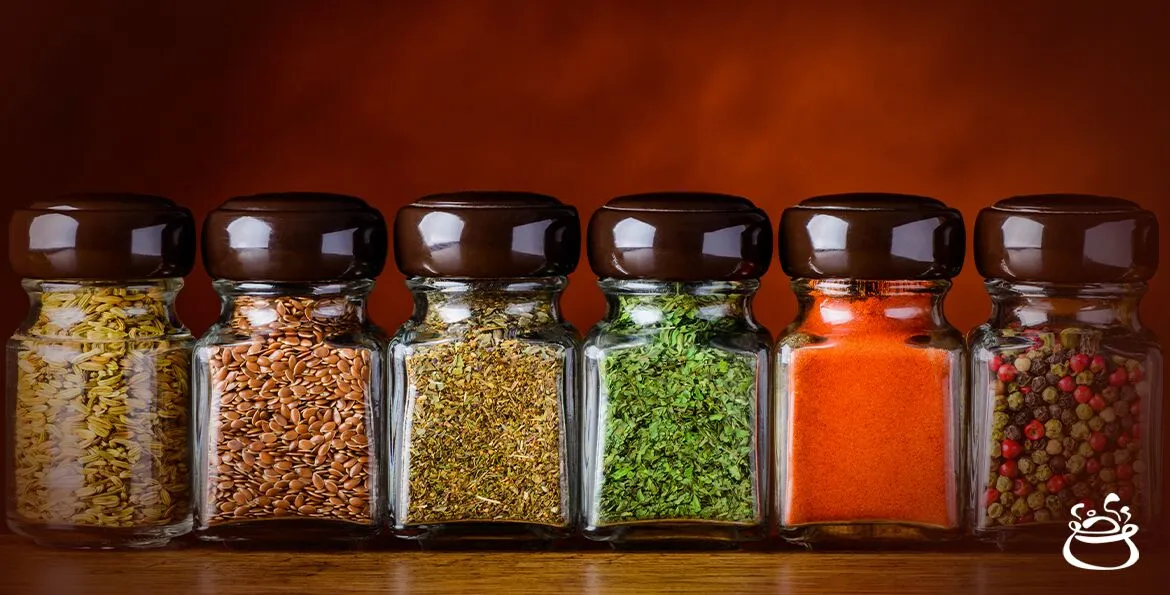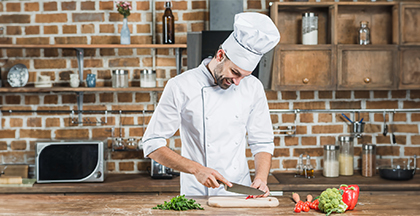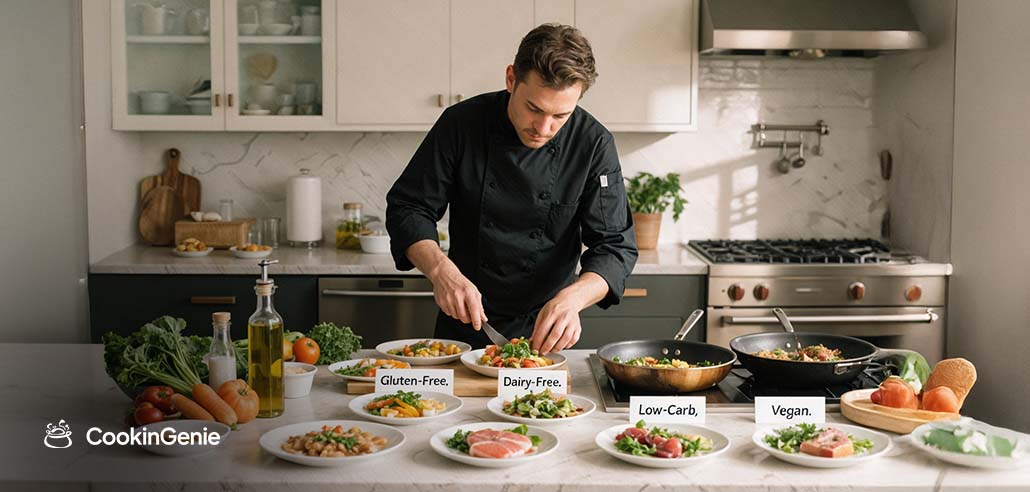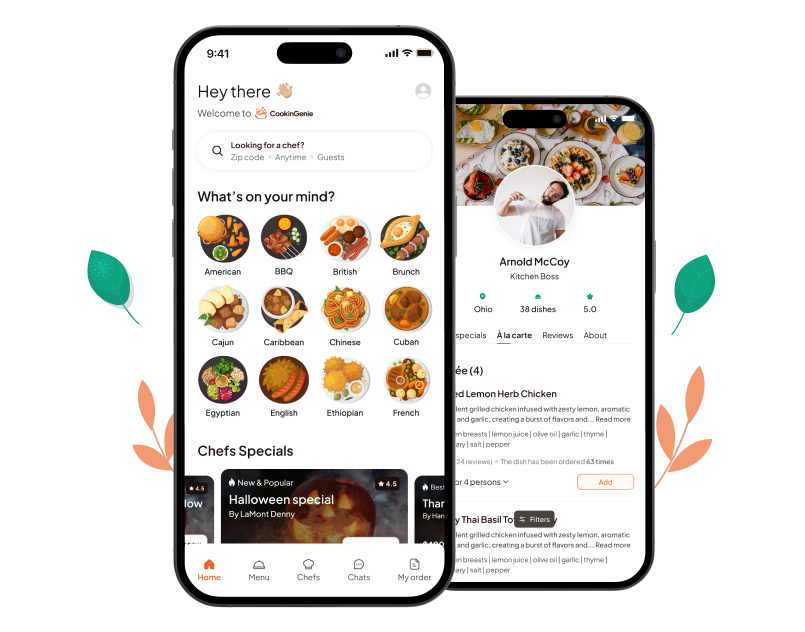Seeds for Health: Get Creative with Cooking
Seeds are becoming increasingly popular among health-conscious consumers who choose seeds as part of their diet due to their various health benefits. Seeds provide a range of vitamins, minerals, and fatty acids that help keep the body functioning optimally. Aside from being nutrient-dense, seeds offer various culinary options for adding texture, crunch, and flavor to meals. This article will explore the many benefits of incorporating seeds into a healthy diet, as well as overviewing several types of seeds available and creative cooking ideas with them.
Benefits of Incorporating Seeds into a Healthy Diet
Incorporating different types of seeds in your diet can be beneficial for overall health and well-being due to their abundance in nutrients such as essential amino acids, healthy fatty acids (like omega-3 fatty acids), dietary fiber, iron, zinc, magnesium, vitamin E, and other vitamins and minerals. Eating foods high in omega-3 fatty acids can reduce inflammation in the body or even possibly prevent certain diseases such as type 2 diabetes or depression due to its anti-inflammatory properties, improving brain function. Other benefits include aiding digestion by providing dietary fiber, which helps regulate blood sugar levels and improves heart health by reducing cholesterol levels and preventing blockages in arteries caused by plaque buildup. These tiny powerhouses are known for helping with weight loss due to their high protein content, which helps keep people full longer; this is especially true if eaten raw or lightly cooked instead of fried or processed.
Overview of Different Types Of Seeds Available
There is an array of edible seeds available, ranging from popular staples like sunflower seed kernels to lesser-known varieties like pumpkin seeds; each type has its unique flavor and nutritional profile that can be added to any dish for added nutrition and taste. Popular varieties include sunflower seed kernels which have an earthy nutty flavor; pumpkin seeds which have a sweet-nutty taste; chia seeds which are rich in antioxidants; sesame seeds which have a nutty flavor; flaxseeds which are high in fiber; hemp hearts which contain all nine essential amino acids; poppyseeds which have a mild nutty taste; quinoa puffs that deliver plant-based protein; amaranth grains with a slightly sweet nutty flavor; golden berries with a tart yet sweet taste; buckwheat groats that offer more than twice the amount of protein found in quinoa per serving size; cumin powder made from dried, roasted cumin seeds with an earthy peppery smell and taste; ground flaxseed meal that makes an excellent substitute for wheat flour when baking recipes requiring flour such as cake doughnuts or muffins because it is gluten-free.
Creative Cooking Ideas With Seeds
With such wide available varieties, it’s easy to get creative with cooking using different edible seeds! Here are some innovative cooking ideas:
- Adding Texture And Crunch To Salads – Sunflower seed kernels add the perfect crunchy topping and additional nutrition when sprinkled on top salads such as kale or spinach! Pumpkin seeds add an even bigger crunch alongside helpful vitamins A & C while providing zinc and iron! Another way to use them is to make your homemade trail mix using chia, sesame, poppy, flax, hemp hearts, golden berries & quinoa puffs!
- Sprinkling Over Roasted Vegetables – Add some extra nutrition & crunch when sprinkling over roasted vegetable dishes such as broccoli & cauliflower. The sunflower & pumpkin seed kernels work great here too! Cottonseed oil also makes an excellent option for roasting vegetables & adding extra flavor while benefiting from an omega three fatty acid boost.
- Making Your Trail Mix – Create your custom trail mix by mixing different varieties depending on your fancy—hemp hearts mixed with dried cranberries, poppyseeds mixed with walnuts, roasted almonds mixed with raisins, etc. The possibilities are endless.
- Creating A Savory Breakfast Bowl – Start your day by creating your savory breakfast bowl topped up with nutritious superfoods such as amaranth grains , ground flaxseed meal & cumin powder ! These ingredients will provide you lasting energy throughout your day plus all natural flavors thanks to all the individual components used.
E . As An Alternative To Bread Crumbs – Another use for ground flaxseed meal could be replacing breadcrumbs altogether since it offers gluten free alternative without compromising on texture! It can easily be used for coating chicken strips before baking in the oven or pan frying before serving.
Health Benefits of Eating Seeds
Adding a few seeds to your diet can be a tasty and highly nutritious way to get the vitamins and minerals your body needs. Seeds give you high-quality protein and healthy fats, plus lots of antioxidants that can protect your body from harm. For instance, some kinds of seeds have generous amounts of omega-3 fatty acids which have been linked to better heart health. Not to mention, most types of seeds are also loaded with fiber that can help improve digestion and keep you feeling full for hours. So why not switch up your normal meals with a bit of seed tossed in? It may look small but it’s packed with plenty of nutrition that can benefit you.
High in fiber and protein
Did you know that eating seeds can have tremendous health benefits? They’re packed with fiber and protein to give you the energy you need to power through your day, while at the same time supplying key nutrients our bodies need to stay healthy. From sunflower seeds to pumpkin seeds and chia seeds, every variety offers a unique set of vitamins and minerals that boost our immune systems and aid in digestion. Even better, eating just a handful of these little powerhouses can keep us fuller for longer – keeping those pesky snack cravings away! When it comes to getting the right balance of nutrients, throwing some seeds into your diet is certainly one tasty way to do it.
Rich in vitamins and minerals
Eating seeds could be one of the easiest and most nutritious ways to nourish your body with healthy vitamins and minerals. Whether it’s pumpkin, sunflower, hemp or chia, each type of seed provides its own unique nutritional benefit that can help improve overall health. Seeds are full of vitamins like A, B, C and E and minerals such as zinc, potassium, and iron – all vital for maintaining a strong immune system. What’s more, they can even help to lower cholesterol levels due to the high fiber content found in them. Plus with their crunchy texture and delicious flavor, adding seeds into your diet is an easy way to get more nutrients!
Antioxidant-rich for health protection
Did you know that seeds are some of nature’s most potent health boosters? That’s right! Packed with antioxidants, protein, fiber, and healthy fats, eating seeds can provide a plethora of health benefits. Seeds like chia, hemp, sunflower and pumpkin are great sources of powerful antioxidants which help to protect our cells from oxidative damage caused by environmental toxins. They offer the added bonus of providing anti-inflammatory properties and promoting great digestion. So enjoy these tiny powerhouses in your favorite salads and snacks throughout the day for optimal health protection!
Omega-3 fatty acids for heart health
Eating seeds is an excellent way to support your overall health and heart health, in particular. Omega-3 fatty acids are essential for keeping the cardiovascular system functioning at its best, and consuming foods that are rich in this nutrient can ensure that your body has a sufficient supply of it. This is why a diet containing omega-3s found in pumpkin, squash, sunflower, hemp, chia and flaxseeds is so important; these small but mighty foods provide important antioxidants too! Eating seeds as part of a balanced diet can help you maintain a healthy weight and reduce the risk of chronic disease. So why not start adding more of these mini health powerhouses to your routine? Your heart will thank you.
Conclusion
Seeds pack a powerful punch of vitamins, proteins, and minerals, making them an excellent addition to any diet. Their versatility is endless – from salads to smoothies, soups to bread, the possibilities are endless! Try experimenting with different seeds like chia, sesame, pumpkin, sunflower, and flaxseeds to add unique flavors and health benefits to your meals. Incorporating seeds into your diet also helps keep you full longer due to their high fiber content.
If you struggle with cooking or have dietary restrictions, incorporating seeds into your diet may seem daunting. That’s where a private chef can come in handy. With their expertise, they can help you create delicious and healthy meals that cater to your specific needs while incorporating a variety of seeds for a well-balanced diet.
Don’t know where to start? Experiment with different seed recipes or consider working with a private chef to unlock the full potential of these tiny nutritional powerhouses.



 Settings
Settings
 Gift Card
Gift Card Blog
Blog Locate Us
Locate Us










 Home
Home
 Chefs
Chefs
 Chats
Chats
 My Order
My Order



